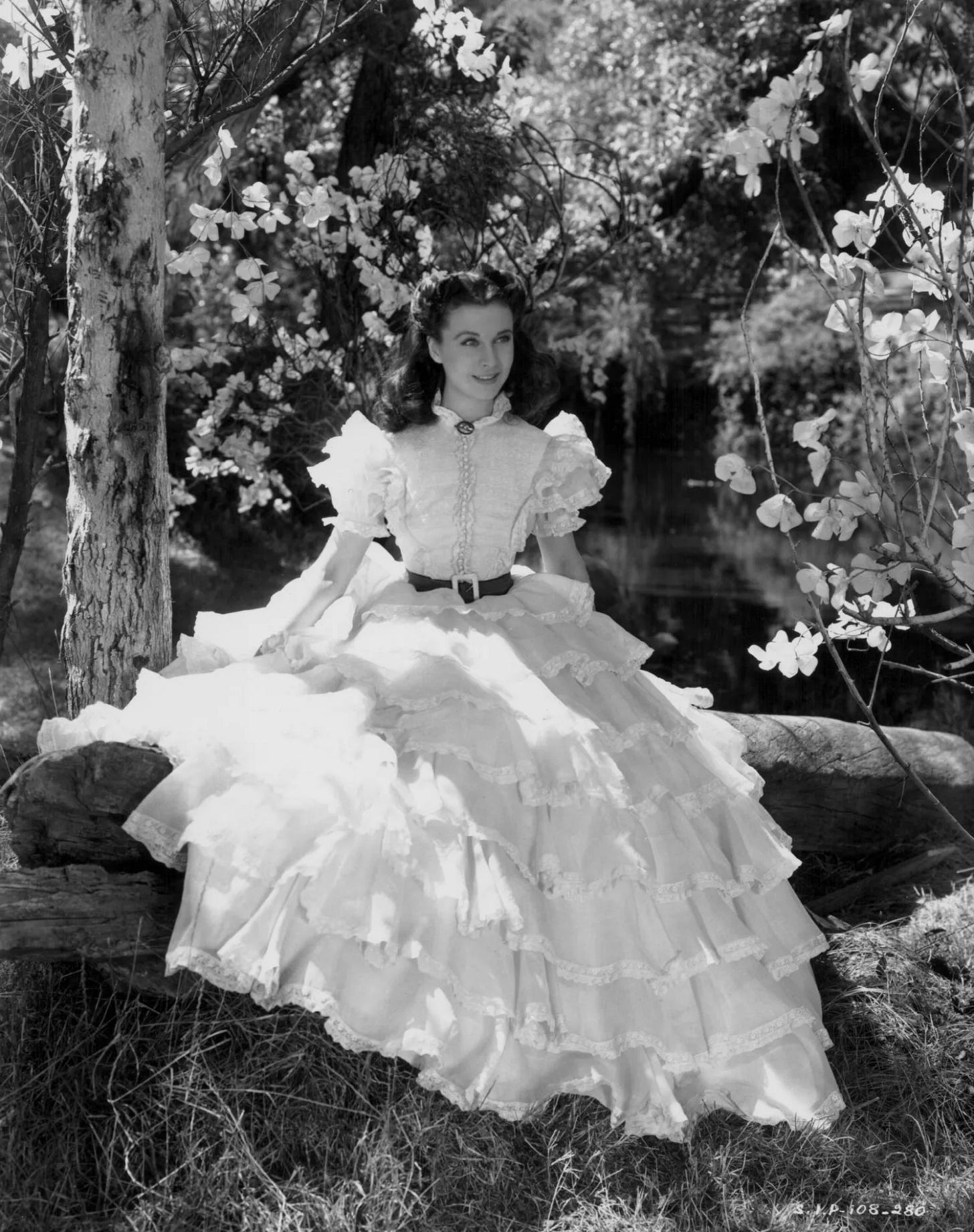I'm rereading Gone with the Wind for fun, and Ellen O'Hara, Scarlett's mother, endowed by a French background and southern-aristocrat upbringing, imparts on her daughters some very specific teachings. Scarlett O'Hara, her eldest, is depicted as incredibly simple-minded, yet the background of Scarlett's mind seemingly comprises the ever-resonant voice of Ellen. A mental background to, well, fall back on — or to knowingly disobey. Either way, Ellen and her ways are always there. Thus, this novel is also one of the sources of what it really meant to be a woman, a good woman, in the antebellum South.
I've always been drawn to manners and the social groups which seem to have more of them. I've been trying to find a book that breaks down how these women thought, spoke, and acted — from a potentially more accurate historical perspective — but I'm coming up short. I've had no luck in finding such a book. While Gone with the Wind is fresh in my mind, I am going to write down what Ellen taught Scarlett.
But first, a little background. What Ellen taught Scarlett most of all is an incredible, indelible work ethic. Ellen kept her family's plantation running, day and night, managing hundreds of slaves, the crop schedule, the material needs of everyone in the household, and even health scares and baby deliveries for neighbors. Her work ethic was praiseworthy — a true Proverbs 31 woman. This is well beyond the corporate family, wherein both men and women have to work. Ellen managed a medium- to large-scale business with no such thing as closing times. And she did it gracefully. Always. This is what Scarlett imbibed from childhood, and I think this origin story is what gave her the strength to endure the complete destruction of southern society with seemingly uncharacteristic resilience. The seeds of strength were always there, even in her most insufferable instances. Truth be told, though, she never reads as insufferable to me. I respect how Scarlett processes new information, in her delightfully curious manner. She is very ladylike despite her desires, kindled into wildfire by Rhett Butler, to rebel (mostly as some kind of vengeance for not having Ashley Wilkes). What made her this way?
Ellen's stern, repetitive teachings.
***
What Ellen taught Scarlett (non-exhaustive):
Have a small appetite (don’t eat at parties).
Never show negative emotions.
Don’t make yourself conspicuous to a crowd (especially sexual attention).
Always look your best.
Be kind and gracious.
Don’t be forward or act too smart.
How to manage a household.
How to sew.
How to embroider.
How to be a good Catholic (not the norm for the landed south).
Never accuse a man directly of wrong-doing, especially among company.
Be nice to fellow guests (no arguing over the dinner table).
Be slightly flirtatious with older men, but not too much.
Never speak to young married men.
Always compliment other ladies, young and old.
How to flirt with potential suitors in a way that is irresistible: be coy, sweet, and easily embarrassed.
No backtalk.
Endure grief gracefully.
Don’t disrespect elders.
How Ellen taught Scarlett:
But what Ellen taught Scarlett is equally important as how she taught it. There might be some invaluable lessons herein on how to raise girls…
Ellen repeated her lessons like mantras, affirmations, the like. These important truths could not be repeated enough. As a result, they remained with Scarlett, becoming an inseparable part of her psyche.
When Ellen was not directly instructing Scarlett, she was living by her principles at every second. Scarlett was in absolute awe of her mother.
***
What it all means:
This is all to say that the messages we hear most in childhood become the background of our psyches. For women especially, who are naturally much less disagreeable and imbibe everything they hear as some sort of truth, repeated messages are the framing of life. This is why good parents matter so much. This is why cultural messages have such a disproportionate impact on women.
The biggest takeaway is that resilient girls are made by imparting the right messages, not once, not twice, but thousands of times — even more if necessary. There's a common misconception that girls are born fairly good, with a natural closeness to God, while boys need to be instructed and made. I don't believe this. Both need to be made. Both need to be instructed, day in and day out. The differences lie in the exact methods. Girls require more words, more comfort, more assurance, and then some more words.




